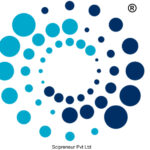
New FDA Approval to Bayer’s Copanlisib For Adults With Relapsed Follicular Lymphoma
Copanlisib is a novel intravenous phosphatidylinositol-3-kinase (PI3K) inhibitor with inhibitory activity predominantly against the PI3K-alpha and PI3K-delta isoforms expressed in malignant B cells. The FDA granted approval under the accelerated approval pathway based on data from the open-label, single-arm Phase II CHRONOS-1 [NCT01660451] trial investigating copanlisib in 104 adult patients with follicular B-cell non-Hodgkin’s lymphoma (NHL) who had relapsed disease following at least two prior systemic therapies.
Accelerated approval based on overall response rate (ORR) of 104 adult patients with relapsed follicular lymphoma (FL) from the Phase II CHRONOS-1 study / Continued approval for this indication may be contingent upon verification and description of clinical benefit in a confirmatory trial / Copanlisib achieved a 59% ORR in patients with relapsed FL [n=104 (95%CI 49,68)] / First approval of an intravenous phosphatidylinositol-3-kinase (PI3K) inhibitor
“The U.S. approval of copanlisib in follicular lymphoma is the first of many milestones we look forward to at Bayer across several new promising compounds in our oncology pipeline,” said Robert LaCaze, Executive Vice President and Head of the Oncology Strategic Business Unit at Bayer. “We are pleased that the FDA has recognized the promising results of the CHRONOS-1 trial and look forward to offering this important new treatment option to patients with lymphoma, who currently have a high unmet need for effective therapies.”
Follicular lymphoma (FL) is the most common subtype of indolent, or slow-growing, non-Hodgkin’s lymphoma (NHL). Response rates and duration of response decline with each line of therapy, underscoring the need for patients whose disease has already progressed.
Developed by Bayer, copanlisib is the only approved PI3K inhibitor with inhibitory activity predominantly against PI3K-alpha and PI3K-delta isoforms expressed in malignant B cells. It is also the only one to be administered intravenously on an intermittent schedule. Copanlisib will be available in the U.S. market immediately.
The New Drug Application for copanlisib received priority review, which is reserved for medicines that would provide significant improvements in the safety or effectiveness of the treatment of serious conditions. The product was approved under FDA regulations 21 CFR Part 314 Subpart H (accelerated approval). The FDA had previously granted copanlisib fast track designation in FL as well as Orphan Drug designation for the treatment of patients with FL and for the treatment of splenic, nodal, and extranodal subtypes of marginal zone lymphoma.
Efficacy and Safety Data Supporting Copanlisib Approval
The Phase II CHRONOS-1 (ClinicalTrials.gov Identifier: NCT01660451) trial included 104 subjects with follicular B-cell non-Hodgkin’s lymphoma (NHL) who had relapsed disease following at least two prior systemic therapies. In the trial, copanlisib achieved an overall response rate (ORR) of 59% [n=104 (95% CI 49, 68)], with 14% of patients achieving a complete response, and a median duration of response of 12.2 months (0+, 22.6). Tumor response was assessed according to the International Working Group response criteria for malignant lymphoma. The primary endpoint was Independent Review Committee-assessed ORR.
Serious adverse reactions were reported in 44 (26%) patients. The most frequent serious adverse reactions that occurred were pneumonia (8%), pneumonitis (5%), and hyperglycemia (5%). Adverse reactions resulted in dose reduction in 36 (21%) and discontinuation in 27 (16%) patients. The most frequently observed adverse drug reactions (≥20%) in copanlisib-treated patients were: hyperglycemia (54%), leukopenia (36%), diarrhea (36%), decreased general strength and energy (36%), hypertension (35%), neutropenia (32%), nausea (26%), thrombocytopenia (22%), and lower respiratory tract infections (21%). The safety data reflect exposure to copanlisib in 168 adults with follicular lymphoma and other hematologic malignancies treated with copanlisb 60 mg or 0.8 mg/kg equivalent in clinical trials. Patients with small lymphocytic leukemia, lymphoplasmacytic lymphoma / Waldenstrom’s macroglobulinemia and marginal zone lymphoma were also enrolled in the study and included in the safety analysis.
About Follicular Lymphoma (FL)
Follicular lymphoma (FL) is the most common histological subtype of indolent, or slow growing, non-Hodgkin’s lymphoma (NHL) that accounts for 22 percent of all newly diagnosed NHL cases worldwide. NHL is the most common hematologic malignancy and the tenth most common cancer worldwide, with nearly 386,000 new cases diagnosed in 2012.
About Copanlisib (Aliqopa)
Copanlisib is an inhibitor of phosphatidylinositol-3-kinase (PI3K) with inhibitory activity predominantly against PI3K-alpha and PI3K-delta isoforms expressed in malignant B cells. The PI3K pathway is involved in cell growth, survival and metabolism, and its dysregulation plays an important role in follicular lymphoma. Copanlisib is administered as a 1-hour intravenous infusion on days 1, 8, and 15 of a 28-day treatment cycle on an intermittent schedule. Treatment should be continued until disease progression or unacceptable toxicity.
The broad clinical development program for copanlisib also includes ongoing Phase III studies in indolent NHL (iNHL) patients who have relapsed or are refractory to prior therapies. The CHRONOS-3 Phase III study is evaluating copanlisib in combination with rituximab in relapsed iNHL and the CHRONOS-4 Phase III study is evaluating copanlisib in combination with standard immunochemotherapy in relapsed iNHL. More information about these trials can be found at www.clinicaltrials.gov.
Copanlisib is currently not approved by the European Medicines Agency (EMA) or other authorities outside of the U.S.
About Oncology at Bayer
Bayer is committed to delivering science for a better life by advancing a portfolio of innovative treatments. The oncology franchise at Bayer includes now four marketed products and several other compounds in various stages of clinical development. Together, these products reflect the company’s approach to research, which prioritizes targets and pathways with the potential to impact the way that cancer is treated.
Bayer: Science For A Better Life
Bayer is a global enterprise with core competencies in the Life Science fields of health care and agriculture. Its products and services are designed to benefit people and improve their quality of life. At the same time, the Group aims to create value through innovation, growth and high earning power. Bayer is committed to the principles of sustainable development and to its social and ethical responsibilities as a corporate citizen. In fiscal 2016, the Group employed around 115,200 people and had sales of EUR 46.8 billion. Capital expenditures amounted to EUR 2.6 billion, R&D expenses to EUR 4.7 billion. These figures include those for the high-tech polymers business, which was floated on the stock market as an independent company named Covestor on October 6, 2015. For more information, go to www.bayer.com.
Follow us on Facebook: http://www.facebook.com/pharma.bayer
Follow us on Twitter: https://twitter.com/BayerPharma
Find more information at www.bayerpharma.com.
Forward-Looking Statements
This release may contain forward-looking statements based on current assumptions and forecasts made by Bayer management. Various known and unknown risks, uncertainties and other factors could lead to material differences between the actual future results, financial situation, development or performance of the company and the estimates given here. These factors include those discussed in Bayer’s public reports which are available on the Bayer website at www.bayer.com. The company assumes no liability whatsoever to update these forward-looking statements or to conform them to future events or developments.







Leave a Reply